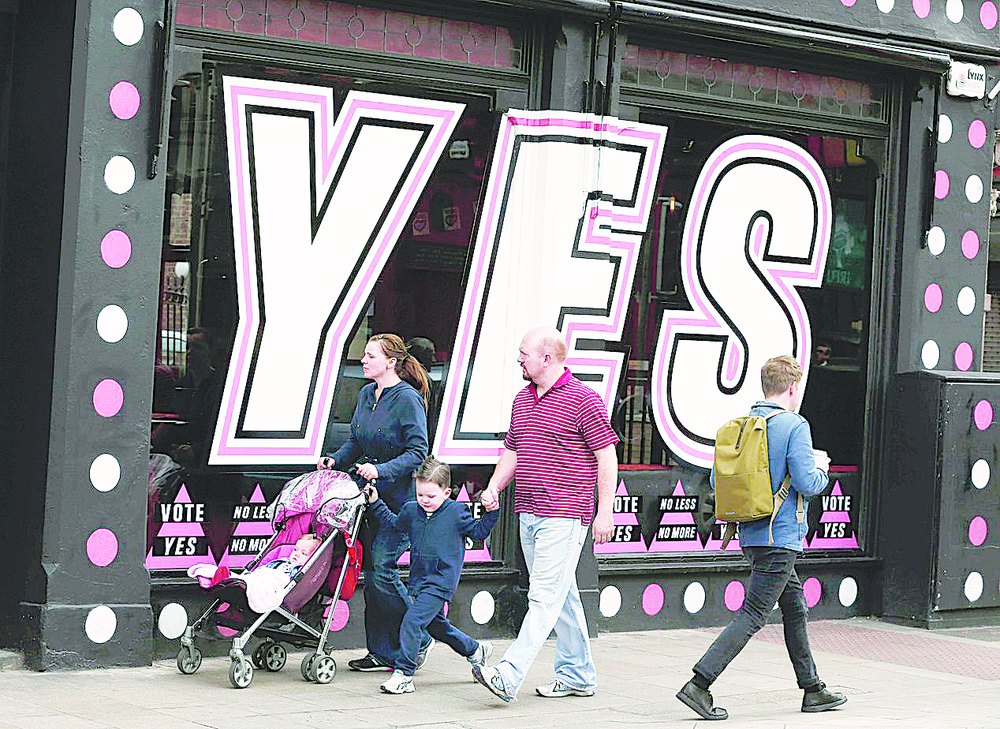
Dublin, May 22 (Reuters): The Irish voted today on whether to allow gay marriage, just two decades after decriminalising homosexuality, with a strong early turnout likely to favour the "Yes" side.
With the once mighty Catholic Church's influence ravaged by child abuse scandals, opinion polls indicated the proposal would pass by as much as two-to-one, making Ireland the first country to adopt same-sex marriage via a popular vote.
On a survey of polling stations at 1200 GMT, Irish national broadcaster RTE said turnout could potentially be one of the highest for a referendum in years.
"It's quite amazing. I'd say at this stage the turnout would be about 50 per cent more than the last referendum," James Barry, returning officer for Dublin, told Newstalk radio, referring to the 39 per cent who voted in an unsuccessful bid to abolish the upper House of parliament in 2013.
The result may depend on whether younger voters, tens of thousands of whom registered as the campaign gathered momentum, turn out to cast their ballots.
The result, which will be declared on Saturday, may also reveal an urban-rural split. When voters legalised divorce by a razor thin majority in 1995, only five of the 30 constituencies outside Dublin backed the proposal.
International interest made the hashtag #VoteYes the top trending issue on Twitter and thousands of Irish expatriates made the trip home from Britain and as far afield as New York and Sydney to vote, groups encouraging the 'Yes' vote, using the hashtag #hometovote, said.
"I've been genuinely overwhelmed by the scale and the scope of the movement," said Joey Kavanagh of the Get The Boat 2 Vote group, as he and about 50 others made the eight-hour journey by train and ferry from London to Dublin.
"It's a very festive, celebratory atmosphere. At the moment we're hanging up posters in the lounge and stringing up balloons. People are just very eager to get back."
Gay marriage is backed by all political parties, championed by big employers and endorsed by celebrities, all hoping it will mark a transformation in a country that was long regarded as one of the most socially conservative in Western Europe.
The Catholic Church, whose doctrine teaches that homosexuality is a sin, has mainly limited its 'No' campaigning to sermons to its remaining flock, a marked contrast with active public opposition to similar moves in France and elsewhere.










